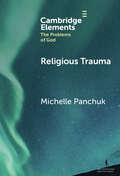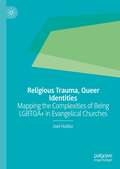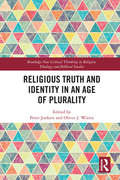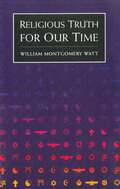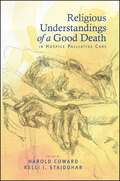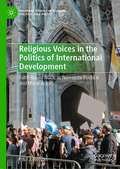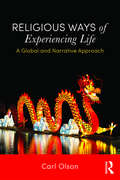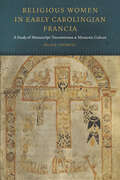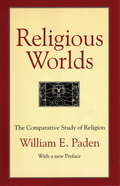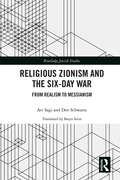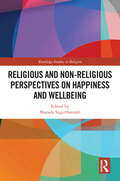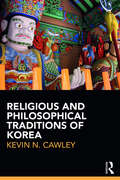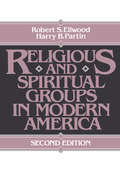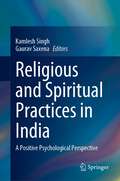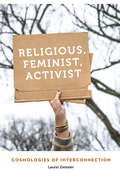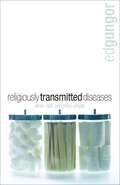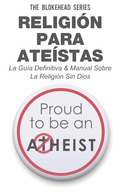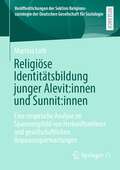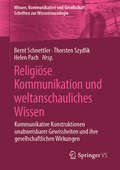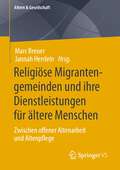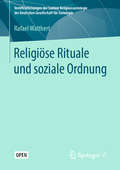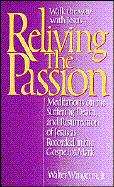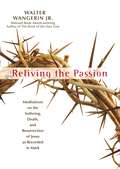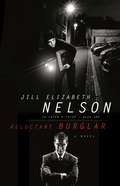- Table View
- List View
Religious Trauma (Elements in the Problems of God)
by Michelle PanchukWhen religion is the cite of abuse and trauma, it can deeply impact a person's ability to relate to God and engage in spiritual practice. As such, religious trauma is ripe for philosophical exploration. The first section of this Element provides a brief history of the concept of psychological trauma, contemporary accounts of its neurobiological basis, and its impact on human agency. The second sketches a model of religious trauma through the first-person narratives of survivors and emerging psychological data. Section three explores the social epistemology of religious trauma, focusing on how failures of knowledge create space for religious abuse and the insights of survivors may help communities guard against it. The last two sections consider three perennial topics in philosophy of religion from the perspective of religious trauma: the problem of evil, the problem of divine hiddenness, and religious experience.
Religious Trauma, Queer Identities: Mapping the Complexities of Being LGBTQA+ in Evangelical Churches
by Joel HollierIn a polarised milieu that too often posits “queer” and “Christian” as competing realms, this book explores the complexities of identity development, religious traumatisation, and the task of creating safe faith spaces in which LGBTQA+ people can find healing, particularly in the Evangelical context. First, Joel Hollier examines the historical path of Evangelicalism, providing context for the current terrain of the “culture war” we find ourselves in. He then parses out experiences of gender/sexuality and religious/spiritual identity development, grounding them in an evolving theoretical base. Finally, Hollier offers a rounded critique of Evangelical church structures and mechanisms of trauma that hinder the healing process, along with potential sources of healing. Central to this work are the voices of LGBTQA+ people whose stories weave together a deeper understanding of the harms the Church has perpetrated, and the path forward.
Religious Truth and Identity in an Age of Plurality (Routledge New Critical Thinking in Religion, Theology and Biblical Studies)
by Peter Jonkers Oliver J. WiertzThis book deals with the intellectual aspects of having diverse religious expressions in proximity and the socio-political consequences. It provides a multi-disciplinary perspective on this complex subject, cross-fertilizing work on religious plurality with truth-claims from theologians as well as philosophers from the continental and analytic traditions. The book includes three major parts. Part 1 explores the ideas around religious diversity and truth; Part 2 draws out the epistemic import of religious diversity; and Part 3 concludes the volume by examining the practical and social aspects of religious diversity. Bringing a transdisciplinary perspective to a topic that remains at the forefront of conversation around the religious life of the world, this book will be of great interest to scholars of Religious Studies, Theology and the Philosophy of Religion.
Religious Truth for Our Time
by W. Montgomery WattOffering ways of addressing the intellectual and practical problems confronting today's religions, this study discusses the way forward for those who believe in the importance of religious faith in a multi-religious world. It also examines issues such as the limitations of human thought and language, and the role of world views which form the context within which different religions are borne. The author's other books include "Companion to the Qur'an" and "The Faith and Practice of Al-Ghazali".
Religious Understandings of a Good Death in Hospice Palliative Care (SUNY series in Religious Studies)
by Harold Coward Kelli I. StajduharWinner of the 2012 AJN (American Journal of Nursing) Book of the Year Award in the Hospice and Palliative Care categoryIn the 1960s, English physician and committed Christian Cicely Saunders introduced a new way of treating the terminally ill that she called "hospice care." Emphasizing a holistic and compassionate approach, her model led to the rapid growth of a worldwide hospice movement. Aspects of the early hospice model that stressed attention to the religious dimensions of death and dying, while still recognized and practiced, have developed outside the purview of academic inquiry and consideration. Meanwhile, global migration and multicultural diversification in the West have dramatically altered the profile of contemporary hospice care. In response to these developments, this volume is the first to critically explore how religious understandings of death are manifested and experienced in palliative care settings.Contributors discuss how a "good death" is conceived within the major religious traditions of Christianity, Islam, Hinduism, Judaism, Buddhism, Chinese religion, and Aboriginal spirituality. A variety of real-world examples are presented in case studies of a Buddhist hospice center in Thailand, Ugandan approaches to dying with HIV/AIDS, Punjabi extended-family hospice care, and pediatric palliative care. The work sheds new light on the significance of religious belief and practice at the end of life, at the many forms religious understanding can take, and at the spiritual pain that so often accompanies the physical pain of the dying person.
Religious Voices in the Politics of International Development: Faith-Based NGOs as Non-state Political and Moral Actors (Palgrave Studies in Religion, Politics, and Policy)
by Paul J. NelsonThis first study of faith-based development NGOs’ (FBOs) political roles focuses on how U.S. FBOs in international development educate and mobilize their constituencies. Most pursue cautious reformist agendas, but FBOs have sometimes played important roles in social movements. Nelson unpacks those political roles by examining the prominence of advocacy in the organizations, the issues they address and avoid, their transnational relationships, and their relationships with religious and secular social movements. The agencies that educate and mobilize U.S. constituencies most actively are associated with small Christian sects or with non-Christian minority faiths with historic commitments to activism or service. Specialized advocacy NGOs play important roles, and emerging movements on immigration and climate may represent fresh political energy. The book examines faith-based responses to the crises of climate change, COVID-19, and racial injustice, and argues that these will shape the future of religion as a moral and political force in America, and of NGOs in international development.
Religious Ways of Experiencing Life: A Global and Narrative Approach
by Carl OlsonReligious Ways of Experiencing Life: A Global and Narrative Approach surveys world religions, using the narratives and discourses of each tradition to describe it in its own terms. Carl Olson examines each tradition’s practices, teachings, material culture, roles of women, and path to salvation, as well as the experiences of its followers. The exploration of lived experience draws out and emphasizes the plural nature of religious traditions. The volume includes chapters on all current major world religions, as well as material on ancient religions of the Mediterranean, indigenous North American and African spiritual traditions, and New Age and new religious movements. Featuring timelines and suggestions for further reading, this text will be of interest to undergraduate students seeking a broad introduction to World Religion or Lived Religion.
Religious Women in Early Carolingian Francia: A Study of Manuscript Transmission and Monastic Culture (Fordham Series in Medieval Studies)
by Felice LifshitzReligious Women in Early Carolingian Francia, a groundbreaking study of the intellectual and monastic culture of the Main Valley during the eighth century, looks closely at a group of manuscripts associated with some of the best-known personalities of the European Middle Ages, including Boniface of Mainz and his “beloved,”abbess Leoba of Tauberbischofsheim. This is the first study of these “Anglo-Saxon missionaries to Germany” to delve into the details of their lives by studying the manuscripts that were produced in their scriptoria and used in their communities. The author explores how one group of religious women helped to shape the culture of medieval Europe through the texts they wrote and copied, as well as through their editorial interventions.Using compelling manuscript evidence, she argues that the content of the women’s books was overwhelmingly gender-egalitarian and frequently feminist (i.e., resistant to patriarchal ideas). This intriguing book provides unprecedented glimpses into the “feminist consciousness” of the women’s and mixed-sex communities that flourished in the early Middle Ages.
Religious Worlds
by William E. PadenFrom Gods, to ritual observance to the language of myth and the distinction between the sacred and the profane, Religious Worlds explores the structures common to all spiritual traditions.
Religious Zionism and the Six Day War: From Realism to Messianism (Routledge Jewish Studies Series)
by Avi Sagi Dov SchwartzThis book offers a new insight into the political, social, and religious conduct of religious-Zionism, whose consequences are evident in Israeli society today. Before the Six-Day War, religious-Zionism had limited its concern to the protection of specific religious interests, with its representatives having little share in the determination of Israel’s national agenda. Fifty years after it, religious-Zionism has turned into one of Israeli society’s dominant elements. The presence of this group in all aspects of Israel’s life and its members’ determination to set Israel’s social, cultural, and international agenda is indisputable. Delving into this dramatic transformation, the book depicts the Six-Day War as a constitutive event that indelibly changed the political and religious consciousness of religious-Zionists. The perception of real history that had guided this movement from its dawn was replaced by a "sacred history" approach that became an actual program of political activity. As part of a process that has unfolded over the last thirty years, the body and sexuality have also become a central concern in the movement’s practice, reflection, and discourse. The how and why of this shift in religious-Zionism – from passivity and a consciousness of marginality to the front lines of public life – is this book’s central concern. The book will be of interest to readers and scholars concerned with changing dynamic societies and with the study of religion and particularly with the relationship between religion and politics.
Religious and Non-Religious Perspectives on Happiness and Wellbeing (Routledge Studies in Religion)
by Sharada SugirtharajahThis book explores the theme of happiness and well-being from religious, spiritual, philosophical, psychological, humanistic, and health perspectives. Taking a non-binary approach, it considers how happiness in particular has been understood and appropriated in religious and non-religious strands of thought. The chapters offer incisive insight from a variety of perspectives, including humanism, atheism and major religions such as Christianity, Islam, Buddhism, Hinduism, and Judaism. Together they demonstrate that although worldviews might vary substantially, there are concurrences across religious and non-religious perspectives on happiness that provide a common ground for further cross-cultural and interreligious exploration. What the book makes clear is that happiness is not a static or monolithic category. It is an ongoing process of being and becoming, striving and seeking, living ethically and meaningfully, as well as arriving at a tranquil state of being. This multifaceted volume makes a fresh contribution to the contemporary study of happiness and is valuable reading for scholars and students from religious studies and theology, including those interested in interreligious dialogue and the psychology of religion, as well as positive psychology.
Religious and Philosophical Traditions of Korea
by Kevin CawleyReligious and Philosophical Traditions of Korea addresses a wide range of traditions, serving as a guide to those interested in Buddhism, Confucianism, Shamanism, Christianity and many others. It brings readers along a journey from the past to the present, moving beyond the confines of the Korean peninsula. In this book Kevin N. Cawley examines the different ideas which have shaped a vibrant and exciting intellectual history and engages with some of the key texts and figures from Korea’s intellectual traditions. This comprehensive and riveting text emphasises how some of these ideas have real relevance in the world today and how they have practical value for our lives in the twenty-first century. Students, researchers and academics in the growing area of Korean Studies will find this book indispensable. It will also be of interest to undergraduates and graduate students interested in the comparative study of Asian religions, philosophies and cultures.
Religious and Spiritual Groups in Modern America
by Robert Ellwood Harry PartinThis text explores the major new or unconventional religions and spiritual movements in America that exist outside the Judeo-Christian tradition.
Religious and Spiritual Practices in India: A Positive Psychological Perspective
by Kamlesh Singh Gaurav SaxenaThis book explores the positive psychological aspects of religion and spirituality in the Indian context. It discusses the concepts and practices of Hinduism, Islam, Buddhism, Christianity, Jainism, and Sikhism and their impact on overall well-being. As the global enthusiasm for Indian spirituality grows, this book brings together scholars to share their perspectives and reflections on various religious aspects. The chapters offer readers a psychological "capsule" of mental health, well-being, compassion, kindness, character strength, mind-body relationship, and mindfulness, providing practical strategies for a better quality of life.Furthermore, this book offers insights into the different perspectives of happiness and well-being measured across diverse demographics. It also provides a qualitative conceptualization of happiness among older people, reflections on positive aging, and highlights the facilitators and inhibitors of happiness. With its comprehensive coverage and multidisciplinary approach, this book serves as a valuable reference for postgraduate and doctoral students of Psychology, as well as a treasure trove in the libraries for researchers and faculties associated with spiritual psychology, positive psychology, religious studies, comparative literature, mental health professionals, academicians, and anyone interested in allied health fields.
Religious, Feminist, Activist: Cosmologies of Interconnection (Anthropology of Contemporary North America)
by Laurel ZwisslerIn Religious, Feminist, Activist, Laurel Zwissler investigates the political and religious identities of women who understand their social-justice activism as religiously motivated. Placing these women in historical context as faith-based activists for social change, this book discusses what their activities reveal about the public significance of religion in the pluralistic context of North America and in our increasingly globalized world. Zwissler’s ethnographic interviews with feminist Catholics, Pagans, and United Church Protestants reveal radically different views of religious and political expression and illuminate how individual women and their communities negotiate issues of personal identity, spirituality, and political responsibility. Political activists of faith recount adventurous tales of run-ins with police, agonizing moments of fear and powerlessness in the face of global inequality, touching moments of community support, and successful projects that improve the lives of others. Religious, Feminist, Activist combines religion, politics, and globalization—subjects frequently discussed in macro terms—with individual personalities and intimate stories to provide a fresh perspective on what it means to be religiously and politically engaged. Zwissler also provides an insightful investigation into how religion and politics intersect for women on the political left.
Religiously Transmitted Diseases: finding a cure when faith doesn't feel right
by Ed GungorDo you feel like something is always wrong, that you can't seem to "get it right" in your relationship with God? Then you probably have a diseased faith - thankfully, there is way back to the innocence and freshness of the hour you first believed.There are only two ways to approach faith: a human-centered approach, or a God-centered one. A human-centered approach rests on human effort and persistence-human "coulds" and "shoulds" It seems noble to work hard to secure godly, fruitful living. But a human-centered faith is fundamentally wrong and harmful. It is about human PERFORMANCE, which ultimately leaves people tired, oppressed and feeling distant from God. A God-centered faith, on the other hand, is refreshing, surprising and nourishing to the human soul. True freedom is found whenever we center our faith on the PERSON of God and not the PERFORMANCE of humankind.
Religión para Ateístas La Guía Definitiva & Manual Sobre La Religión Sin Dios
by The BlokeheadEl ateísmo se caracteriza por el rechazo o la falta de fé en la existencia de un Ser Supremo a quién comúnmente se hace referencia como Dios. A las personas que practican esta creencia se les hace referencia como ateístas. Hay una distinción, sin embargo, a esta creencia. Una forma de ateísmo es un simple caso de escepticismo. Hay incredulidad de que Dios realmente exista. Dicho de manera simple, es negativa o incapacidad de aceptar el concepto de que Dios vive hoy en día, y de que hay un Dios, como la mayoría de las personas cree. Esto se categoriza como "ateísmo débil". Por el contrario, "ateísmo fuerte" tiene una creencia clarísima de que Dios realmente no existe. Por lo tanto, cuando una persona proclama ser ateísta, él o ella podrían ser ateístas débiles o fuertes, dependiendo del grado o intensidad de la creencia en Dios en sus vidas.
Religiöse Identitätsbildung junger Alevit: Eine empirische Analyse im Spannungsfeld von Herkunftsmilieus und gesellschaftlichen Anpassungserwartungen (Veröffentlichungen der Sektion Religionssoziologie der Deutschen Gesellschaft für Soziologie)
by Martina LothSowohl junge Alevit:innen als auch junge Sunnit:innen sind in Deutschland aufgrund eines vorwiegend negativen Images des Islams herausgefordert, sich bezüglich ihrer muslimischen oder vermeintlich muslimischen Identität zu positionieren. Gleichzeitig sehen sich die beiden Gruppen in der Diaspora religionsrechtlich mit verschiedenen Bedingungen konfrontiert. Die alevitische Gemeinde Deutschlands (kurz AABF) hat durch ihren Status als Körperschaft des öffentlichen Rechts und der Durchführung des alevitischen Religionsunterrichts in der Mehrzahl der Bundesländer religionsrechtlich in Deutschland eine bessere Ausgangsposition erreichen können als die Türkisch-Islamische Union der Anstalt für Religion e.V. (kurz DİTİB). In dem Buch werden Gemeinsamkeiten und Unterschiede der sich diesen Gruppen zugehörig fühlenden jungen Adoleszenten in Bezug auf ihre religiöse Identitätsbildung untersucht.
Religiöse Kommunikation und weltanschauliches Wissen: Kommunikative Konstruktionen unabweisbarer Gewissheiten und ihre gesellschaftlichen Wirkungen (Wissen, Kommunikation und Gesellschaft)
by Bernt Schnettler Thorsten Szydlik Helen PachDer Band exploriert die systematischen Bezüge zwischen Wissens- und Religionssoziologie. Zunächst enthält er daher die deutsche Erstübersetzung des klassischen Aufsatzes zu diesem Thema von Berger und Luckmann aus dem Jahr 1965. Das Spektrum der Beiträge umfasst aktuelle Forschungen über diverse Formen religiöser Kommunikation und weltanschaulichen Wissens aus drei Bereichen: Erstens empirische Studien zu religiösen und weltanschaulichen Kommunikationsgattungen, Veranstaltungsformen und Diskursen, zweitens Beiträge zu methodischen Zugriffen für die Analyse religiöser Kommunikation und die Weltanschauungs-analyse sowie drittens theoretische Beiträge zu wissenssoziologischen Aspekten religiösen und weltanschaulichen Wissens. Dabei werden soziologische sowie religionswissenschaftliche und linguistische Perspektiven eingenommen.Der InhaltWissens- und Diskursforschung • Staatliche Interventionen • Naturwissenschaft, Sinnkonstruktion und Weltanschauung • Erlösungskommunikation • Transformation religiöser Sinnresiduen • Gattungen der Sinnvermittlung • Rhetoriken der Normativität • Unsichtbare Religion in Massenereignissen Die Herausgeber*innenProf. Dr. Bernt Schnettler ist Inhaber des Lehrstuhls Kultur- und Religionssoziologie an der Universität Bayreuth. Thorsten Szydlik ist Wissenschaftlicher Mitarbeiter am Institut für Soziologie der Universität Marburg.Helen Pach ist Wissenschaftliche Mitarbeiterin am Lehrstuhl Kultur- und Religionssoziologie an der Universität Bayreuth.
Religiöse Migrantengemeinden und ihre Dienstleistungen für ältere Menschen: Zwischen offener Altenarbeit und Altenpflege (Altern & Gesellschaft)
by Marc Breuer Jannah HerrleinWelche Relevanz haben religiöse Migrantengemeinden für die alltägliche Unterstützung und Pflege von älteren Menschen mit Migrationserfahrung? Professionelle Dienstleistungen der Altenhilfe werden in der genannten Bevölkerungsgruppe bislang nur unterdurchschnittlich genutzt. Gleichzeitig ist bekannt, dass migrantische Religionsgemeinschaften vielfältige soziale Dienstleistungen erbringen. Das Buch verbindet Erkenntnisse und Perspektiven aus Gerontologie, Migrations- und Religionssoziologie, Soziologie des Alter(n)s, Sozialer Arbeit und Sozialpolitikforschung sowie aus den theologischen Wissenschaften verschiedener Religionsgemeinschaften. Zahlreiche Gemeinden positionieren sich als Akteure einer offenen Altenarbeit oder stellen Anschlüsse zur professionellen Altenpflege her.
Religiöse Rituale und soziale Ordnung (Veröffentlichungen der Sektion Religionssoziologie der Deutschen Gesellschaft für Soziologie)
by Rafael WalthertIn diesem Open-Access-Buch wird die Bedeutung von religiösen Ritualen für die soziale Ordnung systematisch untersucht. Dazu werden Konzepte des Zusammenhangs von Ritualen mit verschiedenen Ebenen des Sozialen erarbeitet: Interaktion, Gemeinschaft und Gesellschaft.
Reliving Past Lives: The Evidence Under Hypnosis
by Helen WambachTells of how to recall and learn from your past lives using techniques such as hypnosis.
Reliving the Passion: Meditations on the Suffering, Death, and Resurrection of Jesus As Recorded in the Gospel of Mark
by Walter Wangerin"The story gets personal for every reader, for this is indeed our story, the story whereby we personally have been saved from such a death as Jesus died. No, there is not another tale in the world more meaningful than this. Here is where we all take our stands against sin and death and Satan, upon this historical, historic event. I considered it a holy privilege to participate in its telling. "Read this book slowly. Read it with a seeing faith. Walk the way with Jesus. We, his followers of later centuries, do follow even now. Read, walk, come, sigh, live. Live! Rise again!" --Walter Wangerin, Jr.
Reliving the Passion: Meditations on the Suffering, Death, and the Resurrection of Jesus as Recorded in Mark.
by Walter Wangerin Jr.No story has more significance than this: the death and resurrection of Jesus. But somehow the oft-repeated tale of Christ’s passion can become too familiar, too formalized, for us to experience its incredible immediacy. The meditations in Reliving the Passion, which received a Gold Medallion Award in 1993, follow the story as given in the gospel of Mark—from the moment when the chief priests plot to kill Jesus to the Resurrection. But these readings are more than a recounting of events; they are an imaginary reenactment, leading the reader to re-experience the Passion or perhaps see it fully for the very first time. As only a great storyteller can, Walter Wangerin enables the reader to see the story from the inside, to discover the strangeness and wonder of the events as they unfold. It’s like being there. In vivid images and richly personal detail, Wangerin helps us recognize our own faces on the streets of Jerusalem; breathe the dark and heavy air of Golgotha; and experience, as Mary and Peter did, the bewilderment, the challenge, and the ultimate revelation of knowing the man called Jesus. “The story gets personal for every reader,” writes Wangerin, “for this is indeed our story, the story whereby we personally have been saved from such a death as Jesus died. “No, there is not another tale in the world more meaningful than this—here is where we all take our stands against sin and death and Satan, upon this historical, historic event. I consider it a holy privilege to participate in it retelling. “Read this book slowly. Read it with a seeing faith. Walk the way with Jesus. We, his followers of later centuries, do follow even now. Read, walk, come, sigh, live. Live! Rise again!”
Reluctant Burglar (To Catch a Thief #1)
by Jill Elizabeth NelsonThe Art of Art Thievery When Hiram Jacobs is murdered, the responsibility for his internationally renowned security company falls upon his daughter, Desiree. But a container full of stolen paintings screams the ugly truth--that her father was a thief. Option A: Turn the goods over to the law, disgrace her father's name, destroy their business, put people out of jobs, and embarrass international museums with the fact that they have been displaying clever forgeries. Option B: Surrender the art to the bad guys. But then she becomes an unwilling accomplice to the thieves, and her father's murderer would walk free. Worse, a death threat warns her not to cooperate with federal agents. Can she trust God to guide her down the right path when no option seems right...let alone safe? Art stole her heart... Now can she return the favor? If Desiree Jacobs knows anything, it's art. Her father, whose security company is internationally renowned, taught her everything he knew. Most of all, he taught her about honor. Integrity. Faith. So surely God will forgive her for despising the one man determined to destroy her father's good name? Special Agent Tony Lucano knows Hiram Jacobs is an art thief. But what he can't figure out is Desiree. Is she the innocent victim...or a clever accomplice? Then Hiram is murdered. And along with his company, he leaves Desiree a hidden container full of stolen paintings. But she can't admit her father was a thief! That would destroy their business, put people out of jobs, and embarrass international museums that have been displaying clever forgeries. No, she must find out why her honest father would turn criminal. And she must return the priceless art to the rightful owners without their knowledge. Even if it means facing down a ring of cutthroat art thieves...or accepting help from the man she most distrusts. "Buckle your seat belt for a wild, heart-pulsating read. Jill Elizabeth Nelson's debut novel will leave you breathless!" Linda Wichman, award-winning author of Legend of the Emerald Rose "Reluctant Burglar offers a unique blend of who-dunit mystery and high-stakes thriller, with a touch of humor and romance." Sharon Dunn, award-winning author of the Ruby Taylor mysteries READER'S GUIDE INCLUDED Story Behind the Book"One night I woke up, my whole body tense, after dreaming that a woman had snuck into a home in the middle of the night to return a genuine painting that had been stolen and replaced by a clever forgery. I knew little about her except that she was an expert at what she did, and if she was caught, disaster would follow. My imagination began to play with that nugget. I love stories where people risk much to do the right thing, and I feel sick whenever I hear of art or antiquities desecrated or stolen. Putting these elements together into a tale of intrigue--with a sassy heroine and an intense hero--came easily. I believe that capturing the imagination with a gripping story makes a most effective vehicle to convey thought-provoking realities." -- Jill Elizabeth NelsonFrom the Trade Paperback edition.
